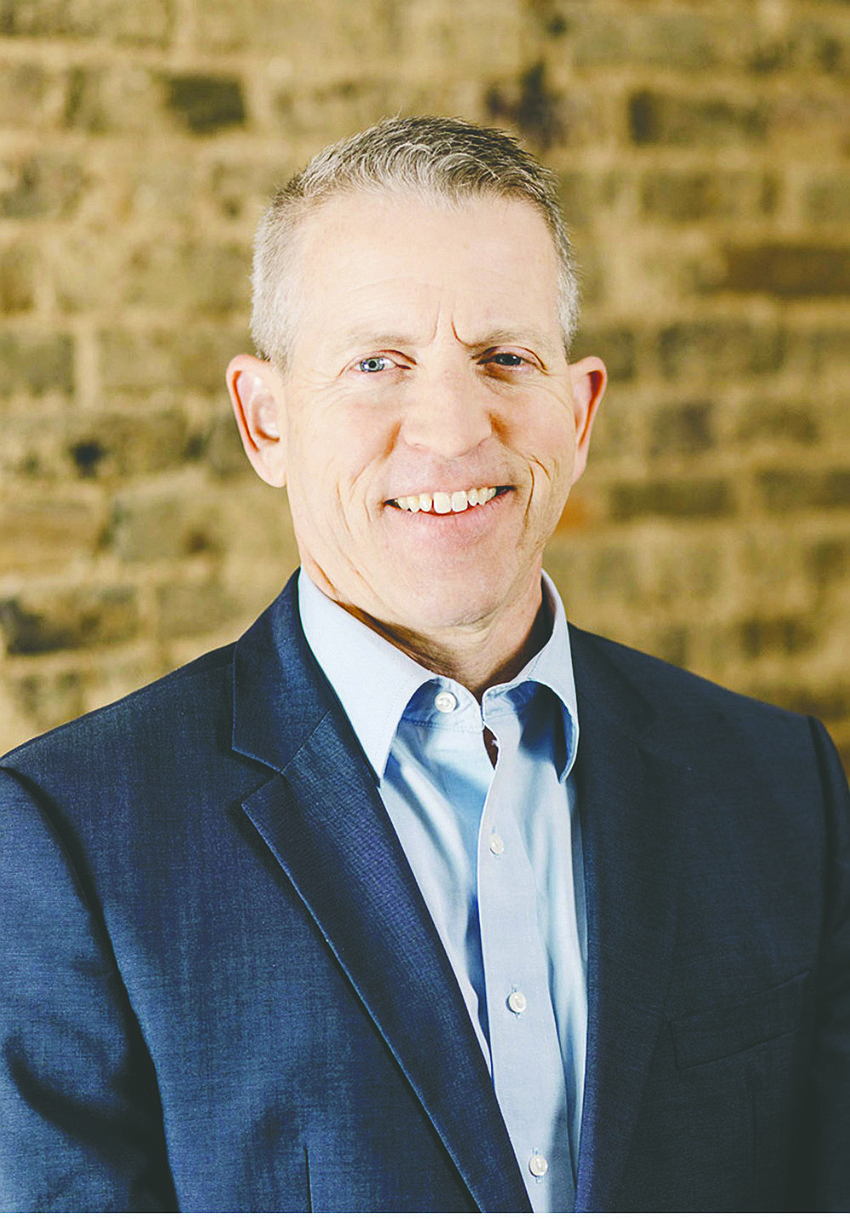
A month has passed since state lawmakers closed their 2023 session, and now the fog is lifting to bring into clarity what they did.
We know lawmakers didn’t raise our taxes. Ya-hoo.
Nor did they really reduce taxes for everyone. They continued their annual game of “look at us, we cut taxes” — that is, with a laundry list of sales-tax holidays.
And it’s probably a safe guess most Floridians know Gov. Ron DeSantis, angling for his quest of the presidency, continued his culture war against wokeness. With the support of his fellow supermajority Republicans in the House and Senate, DeSantis prioritized more legislation designed to squelch the spread of the destructive ESG, DEI and transgender movements.
While that legislation predictably attracted the attention and ire of the leftist press and TV talking heads, Florida’s lawmakers actually did so much more. So much, in fact, the James Madison Institute, the state’s premier think tank, dubbed it “the session of the century.” Not just for Florida, but for all 50 state legislatures around the country.
Robert McClure, president of the institute, says state lawmakers all over America are taking cues from Florida as the model for good policies that produce economic prosperity and protect and promote liberty.
When Rep. Tommy Gregory, R-Lakewood Ranch, addressed a group of James Madison Institute supporters last week, Gregory, not one to be effusive, echoed McClure: “It was the session of the century for the country,” adding, “We did more this year than we did in my previous four years combined.”
Indeed, whether you’re a Republican, Democrat or Independent, the breadth and scope of all they accomplished was stunning. Historic. We’ll predict: Decades from now the 2023 legislative session will be recognized as an apex for the Legislature, a turning or trigger point in Florida’s cultural and economic direction.
The numbers tell one story. In DeSantis’ first legislative session in 2019, the Legislature passed 171 bills. In the most recent session, it passed 317 — the vast majority of which will become law. It would take days for even a savvy policy wonk to wade through and understand the new requirements of so many new laws that will touch so many aspects of Floridians’ lives.
But more significant than the number of bills passed are a few landmark laws that have the ingredients to change the state’s educational foundation and Florida’s economy.
Topping that list of landmark legislation:
• HB 1, universal school choice. This will end public education as we’ve known it — and it will do so for the better. Universal choice will give 3.3 million Florida K-12 students about $8,000 a year in tax money vouchers and the freedom to choose a public or private school and other educational services.
• HB 837, tort reform. Rep. Gregory estimates the provisions of this complicated legislation will save every Florida family at least $5,000 a year, simply because of a reduction in liability lawsuits against businesses. For decades, Florida has been regarded as “Legal Hell,” a result of previous laws that provided an economic boon to trial lawyers. But now lawmakers have turned off that legal spigot.
Those milestone changes to the state’s education and legal systems were historic because lawmakers have been chiseling away for 25 years at seemingly immovable obstacles in pursuit of visions that were often regarded as dreams that would never come true.
A sampling of other new legislation that can be considered transformational:
• The ban on abortions after six weeks, except in cases of rape, incest, human trafficking or medical necessity.
• Not requiring a concealed weapons license to carry a concealed weapon.
• The elimination of Enterprise Florida, its associated economic development groups and the millions of dollars it dispensed in subsidies to attract corporations.
• The expansion of Kidcare, the state and federally subsidized health insurance for children, a measure estimated to enroll 16,000 children next year at a starting cost of $10 million for Floridians and $25 million for federal taxpayers and sure to grow as entitlements do.
• Senate President Kathleen Passidomo’s $700 million bill designed to increase affordable housing via incentives and subsidies to builders and scaling back local zoning restrictions.
• The easing of the teacher certification process.
Outside the margins
With the passage of more than 300 bills, there are many others that can be regarded as transformative. But the above bills are singled out to illustrate how this year’s Legislature is different from those of previous years in at least two respects:
One: Typically, lawmaking is plodding, incremental and in the margins; rarely bold or dramatically disruptive to the status quo. Entrenched institutional and societal ways of business are often impenetrable fortresses, even when they’re failing. That’s the nature of government.
Two: Typically, legislative bodies spend most of their sessions creating more laws that expand government interventionism. And with each intervention, the citizenry loses more of its freedoms.
If you examine the 300 bills lawmakers approved, the vast majority are injecting more regulations and expanding government to solve perceived problems. The Kidcare and affordable housing legislation are two examples.
But with universal school choice and tort reform, this year’s Legislature went outside the margins, went big and bold and actually did something that few lawmakers ever do: increased citizens’ freedoms.
Education Holy Grail
With school choice, Florida reached the Holy Grail. The late economists Milton and Rose Friedman must be dancing in their graves, while former Florida Gov. Jeb Bush is seeing the seed he planted becoming an oak.
The Friedmans first proposed school vouchers as a way to improve public education in the mid-1970s. That idea finally began sprouting in the late 1990s. Gov. Bush sparked the revolution in 1999 in his first term. Alarmed then that Florida’s public schools ranked near the bottom nationally, Bush was determined to upend that embarrassing status.
The thrust of his new education initiatives focused on accountability, introducing statewide testing and a grading system for schools and districts. But one small seed of his initiative was a school voucher program that would allow children in failing schools to transfer to better schools. The choice door opened ever so slightly.
Ever since then, Florida has been the national leader in spreading school choice options and spreading more freedom. “This is the next iteration of parental choice,” Bush told us. “Parents will ultimately be able to customize their children’s learning experience with hybrid offerings.”
Bush also believes this expanded choice won’t be the death of public education. Instead, it will inspire public school districts to “respond with better traditional school offerings and invigorated magnet schools.”
Let the competition begin.
Increased freedom
Tort reform also increases Floridians’ freedom. Trial lawyers say otherwise, because they argue the laws will now protect businesses and deny poor and middle-class Floridians who can’t afford lawyers access to justice. The increase in freedom comes from having $5,000 more in every family’s checking account.
More freedom: Ability to carry a concealed weapon without having a license.
More freedom: Elimination of corporate incentive subsidies. For every tax dollar used to subsidize or lure corporations to relocate to Florida, those are dollars taken out of the pockets of everyday Floridians and, often, out of the pockets of existing businesses that end up at a competitive disadvantage to the subsidized corporate newcomer.
More freedom: Relaxing teacher certification requirements. This will give schools the freedom to tap the expertise of Florida’s well-educated but noncertified retirees.
Finally, how is a ban on abortions after six weeks more freedom? It’s giving unborn children the freedom to live.
How and why?
Underlying the historic breadth of legislation adopted in this year’s session are the questions of how? — how they did it, and why? — why were they able to push through so much?

An obvious answer is supermajorities. Republicans have that in the House and Senate, rendering Democrats virtually powerless to stop Republicans’ agenda.
But the answer to those questions goes deeper than that. Republicans have controlled the House, Senate and governor’s office for two decades.
But unlike in previous years, this time around there was an essential ingredient: strong and almost complete alignment among the top three leaders — Gov. DeSantis, President Passidomo and Speaker Paul Renner.
They had multiple meetings over multiple months prior to the session, Renner told us. They “reiterated that we were going to try to do it a different way. It was not necessarily an explicit joint plan, but it was an ‘everybody wins’ approach.”
Renner explained how things were different this year versus, say, 2022 and 2021, when businessman Wilton Simpson was Senate president and lawyer Chris Sprowls was speaker.
“I would point to a commitment that we made to each other to pass each other’s priorities as the No. 1 reason why we accomplished so much,” Renner said.
“Essentially, we made all those priorities the common priorities of the House, Senate and governor’s office. And that flowed down from the top to our leadership teams to the members.
“In times past,” he said, “you saw things devolve based on personality conflicts, egos or ‘If I don’t get what I want, your bill is not going to get moved.’ It was a traditional belief then that everything had to be leveraged — ‘If you want this, I’ve got to get something for it.’”
But there was one other ingredient: “It goes back to having people going big,” Renner said. DeSantis has said in many speeches and in his book, “Be willing to take bold stands.”
Renner is of the same mind. “That was my overarching goal — to get as much accomplished as we could during my (two years) as speaker. I wanted to make sure that every big problem that could be solved was solved.”
He added: “There is certainly more to be done.”
Passidomo declined to comment.
The next session
Renner and Gregory already have priorities for the 2024 session. Near or atop the list: infrastructure.
Renner and Gregory both said given the amount of tax money the state is taking in with rapid population growth, the state’s infrastructure needs — roads, bridges, sewer systems, water treatment — will be an essential priority. Renner is forming a strategy commission to determine Florida’s needs 20 and 30 years from now.
Renner also listed health care costs and solving the shortage of physicians and nurses, adding, “Child welfare needs to be fixed.”
Better funding for the state’s overburdened court system is likely to be a high priority as well. As Gregory told the James Madison audience: “When the courts don’t have enough resources, that’s justice delayed and justice denied.”
Freedom comes with risks
After watching the Legislature for 40-plus years, we’ve observed the standard post-session assessments. Lawmakers go back to their districts and tout how wonderful they are and how they passed more laws to fix problems that were created by previous laws.
The media, in turn, pecks away at the politicians for what they failed to do or how they kowtowed to sacred-cow special interests.
And the constituents go “ho-hum.”
This time, it’s different. No one, of course, knows at this point what the unintended consequences will be of, say, universal school choice, tort reform, the six-week abortion ban, the concealed carry gun law, or, for that matter, the 300 other bills that will become law.
But whether you like or dislike Florida’s Republican controlled Legislature, the governor, Senate president, speaker and Republican lawmakers deserve positive recognition. They did what few politicians do: They went outside the margins and went bold — with the belief they will be changing Florida and Floridians’ lives for the better.
We hope and believe, history will prove them right.
When a former teacher told Gregory she worried about the effects of school choice on the state’s public education system, Gregory said he understood her concern. But then he added a comment that applies universally: “Freedom comes with risks.”
Risks worth taking.